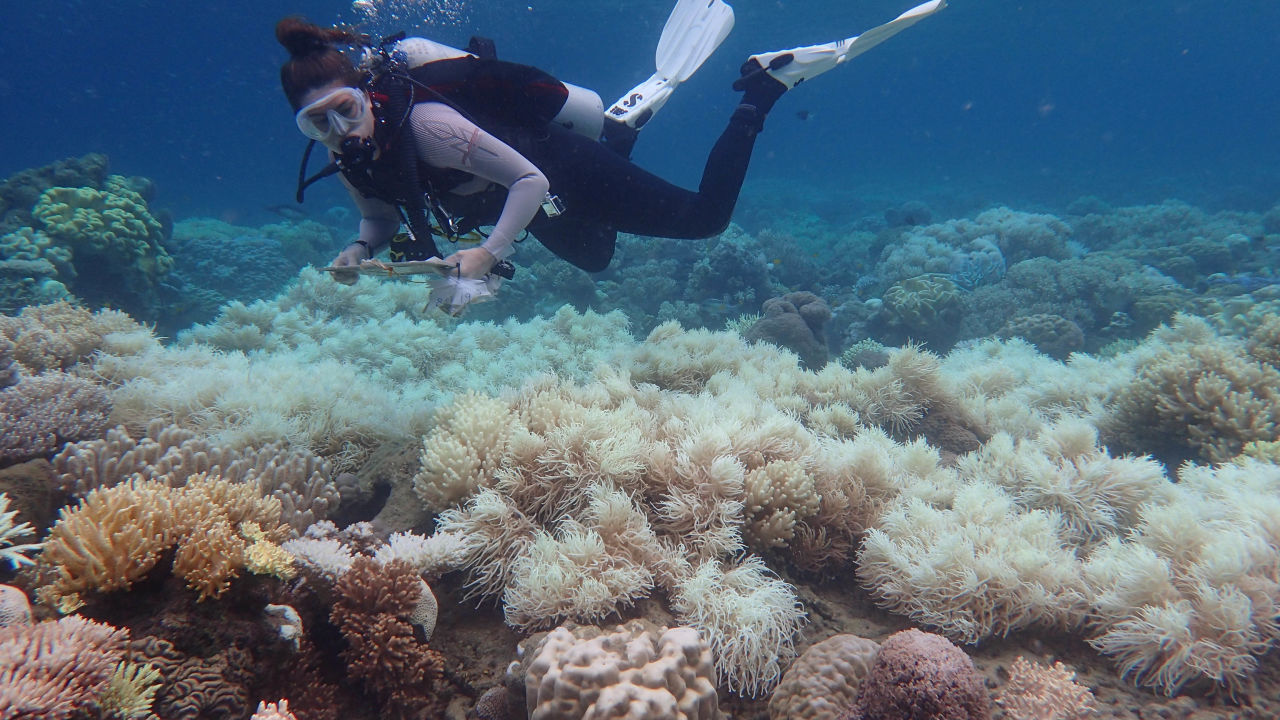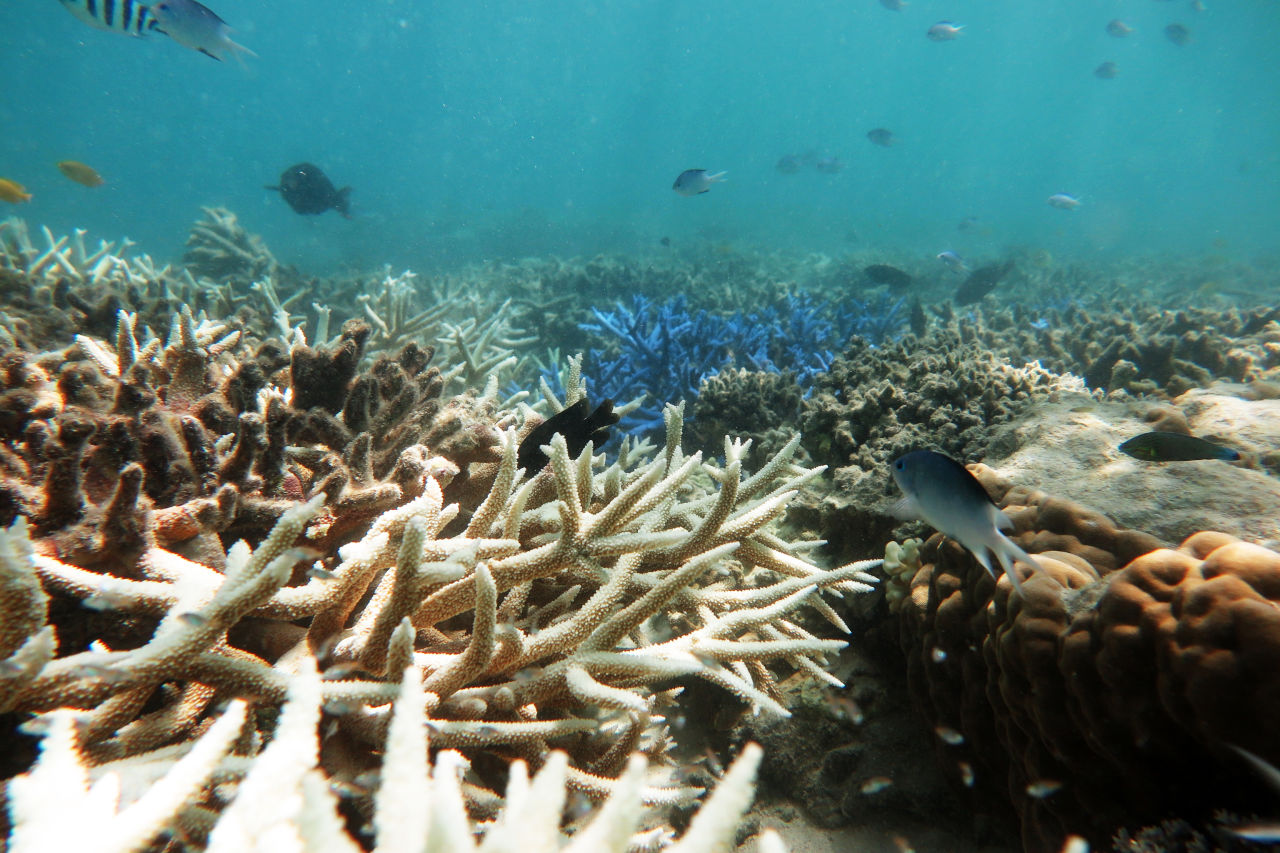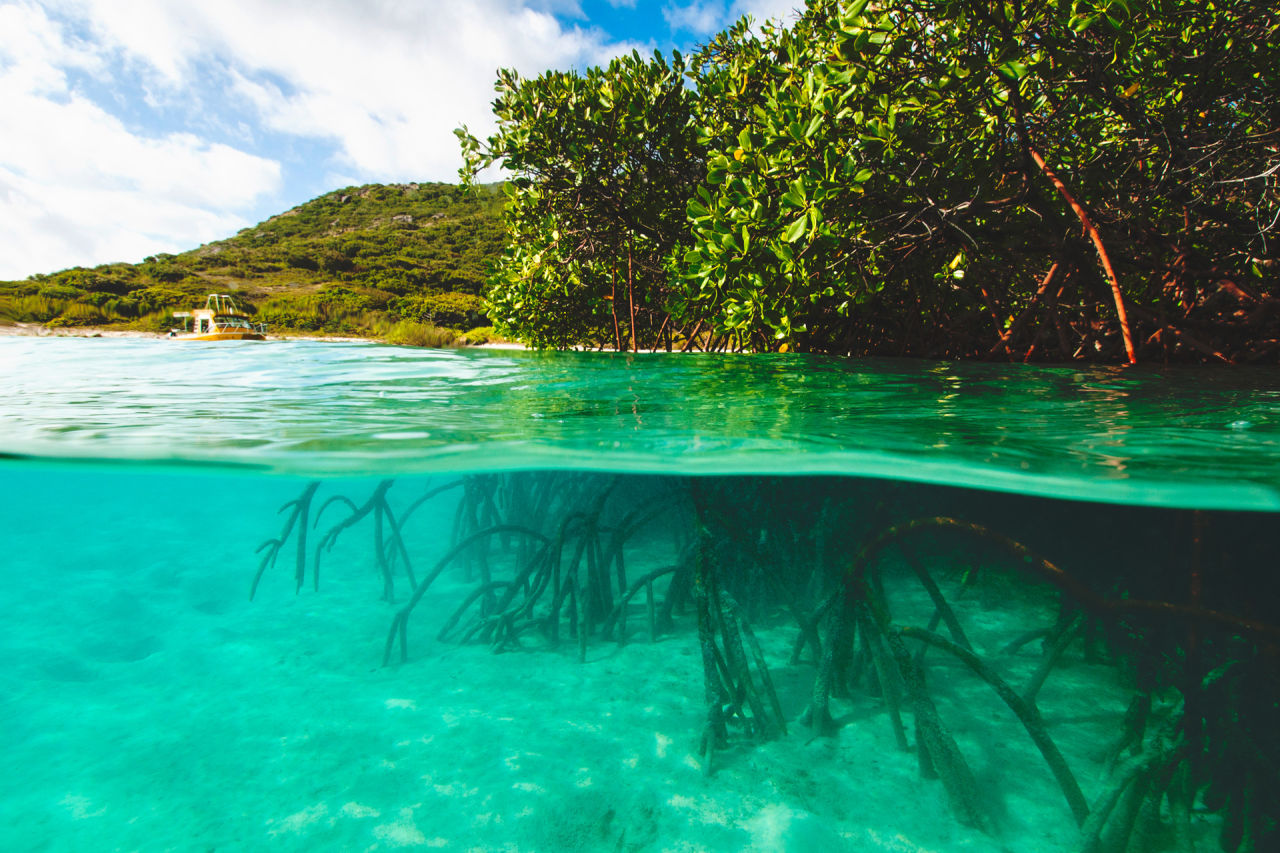News ·
This is the critical decade for coral reef survival
Our generation holds the Great Barrier Reef’s future in its hands. The actions we take now will determine whether it thrives or collapses.

Insufficient global action on climate change is taking a serious toll on the health of our Great Barrier Reef and coral reefs around the world.
The facts are clear – coral reefs and their communities are on the front line. We know current climate change commitments don’t go far enough to protect them and we know this is the critical decade in which to act with urgency.
The UN's Climate Change Conference – COP26 – is a pivotal moment in the global response to climate change.
The Great Barrier Reef, and coral reefs around the world, need global leaders to rapidly accelerate measures to tackle climate change. Without this, the chances of saving coral reefs are slim.
But there is hope. Science tells us if we act now, we can double the likelihood of having healthy coral reefs into the future.
To succeed, we must do two things: reduce greenhouse gas emissions, and help coral reefs adapt to the changes already caused by climate change.
#Reducing emissions
Temperatures on Earth are rising due to an increase in carbon dioxide (CO2) and other greenhouse gases in our atmosphere, primarily caused by the burning of fossil fuels. This traps more heat in our atmosphere and contributes to climate change.
Already, average surface temperatures globally have risen 1.1 degrees since the late 1800s. The ocean absorbs most of the trapped heat, putting marine ecosystems – which are particularly vulnerable to heat stress – at risk.
On the Great Barrier Reef, this has triggered three mass coral bleaching events in just five years, reducing shallow water coral reefs by as much as 50 per cent. It has also increased the frequency and intensity of severe weather events such as cyclones and flooding and has forced marine species to move south to cooler waters.
If warming reaches 1.5 degrees, we will see the destruction of up to 90 per cent of the world’s coral reefs. At 2 degrees, they may be lost forever.

The Global Coral Reef Monitoring Network (GCRMN) has published a detailed report on the toll elevated temperatures have taken on the world’s coral reefs.
The Status of Coral Reefs of the World: 2020 report is the largest analysis of global coral reef health ever undertaken. It found that 14 per cent of the world’s coral has been lost since 2009.
The report also noted, however, that some of these corals recovered during the 10 years to 2019. This indicates that coral reefs are still resilient and, if immediate steps are taken to cut emissions and ease pressures on these critical ecosystems, they have the capacity to recover.
That’s why urgent global action to drastically reduce emissions is needed right now.
As well as reducing emissions, we must support and strengthen key ecosystems like seagrass meadows, mangroves and tidal marshes, which help absorb CO2 from the atmosphere.
These ecosystems, known as blue carbon sites, play a key role in combating climate change by storing carbon. The Great Barrier Reef is one of the world’s most powerful blue carbon sites.

#Helping coral reefs adapt
While the world works towards reducing greenhouse gas emissions, we must also build the resilience of Reef ecosystems.
The Great Barrier Reef Foundation is doing this by rapidly developing and scaling up interventions that buy time for coral reefs and help them adapt to the warmer temperatures already caused by climate change.
Reef Recovery 2030 is our ambitious 10-year collective effort to save the Great Barrier Reef and support global coral reef conservation.
Led by the Foundation, in partnership with the world’s leading coral reef scientists, Australian Government, reef managers, First Nations people and local communities, Reef Recovery 2030 will boost the resilience of these unique reef ecosystems and the people that rely on them through five visionary initiatives:
Act on climate change
Protect, restore and adapt coral reefs
Restore reef islands and coasts
Improve water quality
Boost community resilience
Reef Recovery 2030 has been endorsed as a flagship action of the United Nations’ Decade of Ocean Science for Sustainable Development.
The UN launched the Ocean Decade this year to support innovations that will boost the health, sustainability and resilience of our oceans by 2030. It offers a once-in-a-lifetime opportunity for countries to work together to save our oceans and reefs.
Great Barrier Reef Foundation Managing Director Anna Marsden says it’s not too late if we act now.
“We must urgently build the resilience of reefs against the impacts of global warming that are happening right now.
“It’s not too late. We can save the Great Barrier Reef for generations to come and we are bringing the brightest minds and best science together to do just that.”
#What is COP26?
COP stands for Conference of the Parties. It’s an event for the countries that signed the 1994 UN Framework Convention on Climate Change.
The next meeting is being held in Glasgow, Scotland from October 31 to November 12, 2021. It will be the 26th meeting since the treaty was signed, hence COP26.
At the conference, countries will report back on their progress since the Paris Agreement, which was formed at COP21 in Paris in 2015.
Under the agreement, 195 countries committed to:
- reducing greenhouse gas emissions
- increasing renewable energy types
- keeping global temperature increases to 1.5 degrees, and “well below” 2 degrees
- spending $100bn annually to help poorer countries tackle climate change
This year, parties will also discuss how they can rapidly accelerate global action to tackle the current climate crisis.




